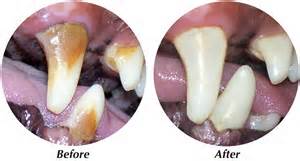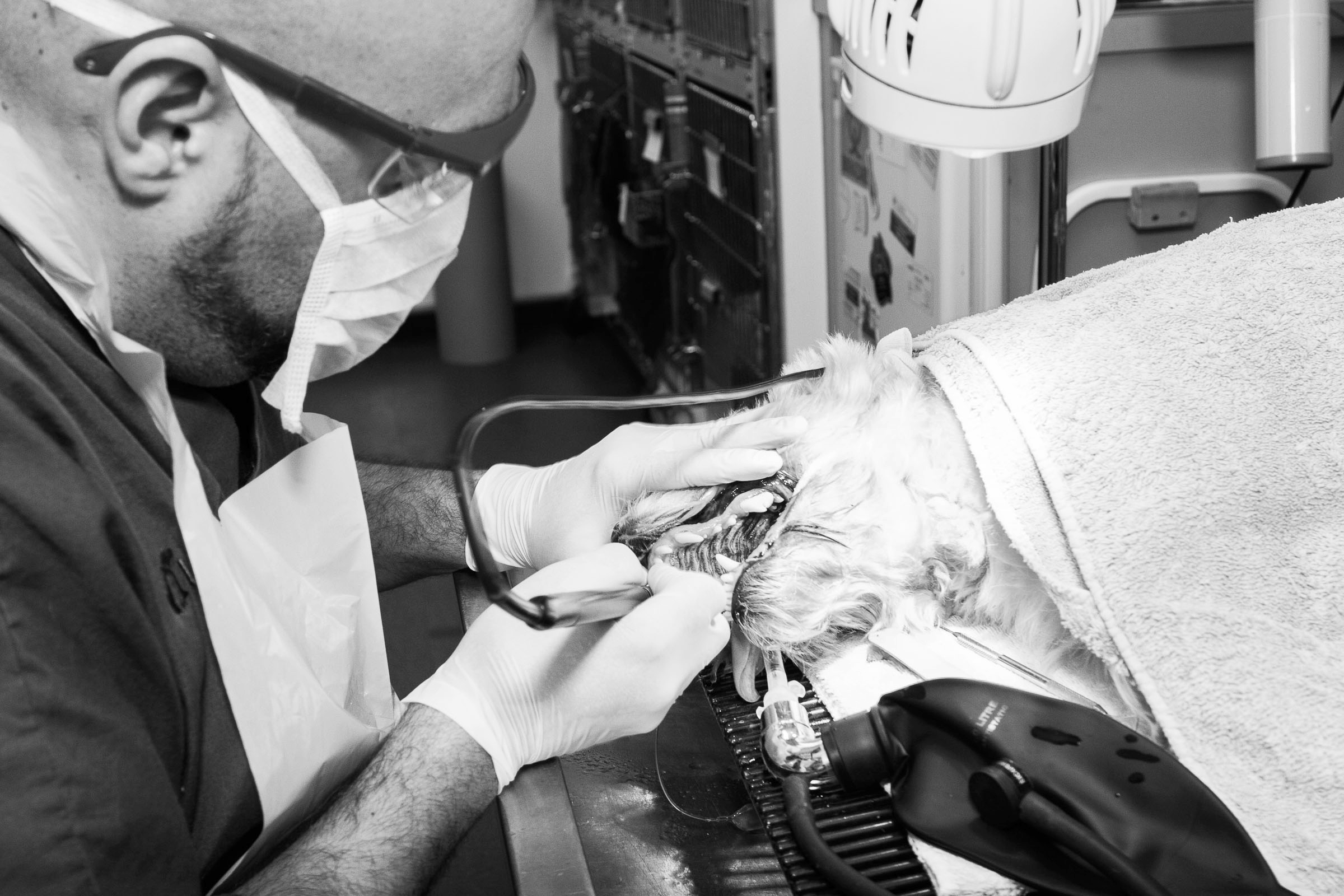
Dental care is more than just a cure for your pet's bad breath. Like people, your pet needs preventative dental care. Dental disease is often described as a silent disease as periodontal disease can progress rapidly without the patient showing any obvious clinical signs. Patients with dental disease can continue to eat normally and may not let you know they are in pain. Here are some things to think about while you're brushing your own teeth:
An oral examination is part of a complete physical examination and is performed at every one of your pet’s visits. During an oral exam, our veterinarian will assess the degree of tartar and periodontal disease that your pet may have. We also check to see that your pet has the proper number of teeth and that they are properly positioned. As your pet matures, we will continue to monitor any changes in their oral health, in addition to monitoring the progress of their deciduous and their adult teeth.
Special attention must be paid to the mouths of small and toy breed dogs, as they are more prone to having retained deciduous teeth. These are “baby” teeth that don’t fall out as permanent teeth come in. Sometimes, these teeth might need to be extracted to allow the adult teeth to develop with proper alignment. Our veterinarians often recommend extracting the retained deciduous teeth at the time of your pet’s spay or neuter procedure.
Thorough dental care greatly benefits your pet. That’s why we utilize the latest digital dental x-ray technology. Digital dental x-rays provide a detailed picture of your pet’s mouth, allowing us to diagnose problems that may not be visible during a standard oral exam. X-rays can detect problems below the gum line due to bone loss and periodontal disease.
A professional dental cleaning a crucial part of improving your pet’s total wellness if they are experiencing dental disease. Veterinary dentistry, oral medicine, and oral surgery include the cleaning, extraction, or repair of animals’ teeth and/or gums. These procedures are performed by our veterinarians and dental technicians.
Dental anesthesia is critical for a complete, thorough cleaning for the following reasons:
Thorough dental care greatly benefits your pet. The veterinary team at University Animal Hospital utilizes the latest digital dental x-ray technology. This technology has many positive effects on your pet’s dental care. Digital dental x-rays provide a detailed picture of your pet’s mouth, allowing us to diagnose problems that may not be visible during a standard oral exam. Digital dental x-rays allow us to detect problems below the gum line due to bone loss and periodontal disease. University Animal Hospital is one of the only veterinary hospitals on Manhattan’s upper east side – and one of the few in all of New York City – to offer advanced digital radiology.
Your pet’s dental cleaning begins with a complete physical examination and blood testing, both of which are important for evaluating your pet’s general health. Your pet’s veterinary dental cleaning is very different from the process you might undergo at your dentist. Veterinary dentistry is considerably more involved, time-consuming and complex. Cleaning a pet’s teeth requires general anesthesia and a day of hospitalization.
